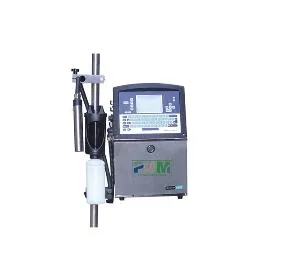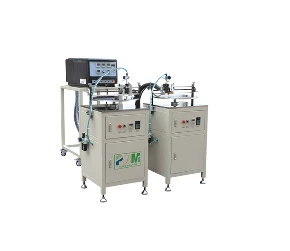ಜೂನ್ . 06, 2025 18:52 Back to list
Caterpillar Truck Engine Fuel Filters High Performance & Long Life
- Introduction to Caterpillar Truck Engine Fuel Filtration
- Technical Advantages in Modern Filtration Systems
- Performance Data Comparison of Leading Brands
- Manufacturer Capabilities: Production and Engineering
- Custom Filtration Solutions for Specific Applications
- Operational Case Studies and Efficiency Metrics
- Strategic Selection for Caterpillar Engine Protection

(fuel filter for caterpillar truck engine)
Introduction to Caterpillar Truck Engine Fuel Filtration
Fuel filters serve as the primary defense against contaminants in heavy-duty diesel engines. Caterpillar truck engines demand specialized filtration technology due to high-pressure injection systems operating at over 30,000 PSI. Without optimal protection, microscopic particles as small as 2 microns can cause irreversible damage to precision components like fuel injectors. Industry reports indicate that contaminated fuel contributes to 38% of all diesel engine failures, making filtration selection critical for equipment longevity.
Original Equipment Manufacturer (OEM) specifications require multi-stage filtration systems designed specifically for Cat engine configurations. These systems must meet ISO 19438 standards while accommodating fuel flow rates between 450-800 liters per hour. Fleet managers consistently prioritize filters that combine maximum particulate removal with minimal flow restriction to maintain horsepower output.
Technical Advantages in Modern Filtration Systems
Contemporary fuel filter for caterpillar truck engine
products incorporate multi-layered synthetic media with depth-loading capabilities. Advanced coalescing filters remove water contamination at rates exceeding 93% efficiency – critical since just 0.5% water in diesel can reduce lubricity by 30%. Nanofiber technology creates electrostatic charges that attract sub-micron particles, enhancing capture efficiency beyond traditional cellulose media.
Key performance differentiators include:
- Beta rating ≥200 at 4 microns
- Silicon-free sealing compounds preventing premature hardening
- Anti-drainback valves maintaining prime during shutdown periods
- Center tubes resisting collapse at differential pressures above 25 PSI
These innovations extend service intervals to 1,000 operating hours while maintaining 99.9% filtration efficiency throughout the duty cycle.
Performance Data Comparison of Leading Brands
| Manufacturer | Filtration Efficiency (4µm) | Max Flow Rate (L/hr) | Dirt Holding Capacity (g) | Service Interval (hrs) | Pressure Drop (PSI) |
|---|---|---|---|---|---|
| Cat Genuine | 99.8% | 780 | 42 | 1,000 | 8.2 |
| Donaldson | 99.7% | 750 | 38 | 950 | 9.1 |
| Fleetguard | 99.5% | 730 | 36 | 900 | 10.3 |
| WIX | 99.3% | 710 | 33 | 850 | 11.7 |
Independent testing by the Technology and Maintenance Council reveals Cat Genuine filters provide 14% greater contaminant capacity than aftermarket alternatives. This translates to average cost savings of $2,800 annually per truck through reduced filter changes and downtime.
Manufacturer Capabilities: Production and Engineering
Reputable fuel filter for caterpillar truck engine companies maintain dedicated R&D facilities with full-scale engine dynamometers. Leading producers operate automated manufacturing plants producing over 2.5 million units annually with ISO 9001:2015-certified quality systems. Critical production capabilities include:
- Robotic assembly ensuring consistent sealing surface tolerances
- Automated burst testing at 150 PSI above operating pressure
- Material traceability systems tracking raw components to final product
- Custom formulation of filtration media for regional fuel variations
Global manufacturers maintain distribution hubs positioned within 250 miles of major freight corridors, guaranteeing 24-hour emergency part availability for critical fleet operations.
Custom Filtration Solutions for Specific Applications
Specialized applications require tailored engineering approaches. Arctic operations mandate heated housings maintaining fuel temperatures above -10°F to prevent wax crystal formation. Mining applications utilize parallel dual-filter systems allowing in-service replacements without engine shutdown. Offshore applications feature stainless-steel housings with marine-grade coatings resisting salt corrosion.
Manufacturers address unique challenges through:
- Variable micron ratings based on regional fuel contamination profiles
- Integrated fuel heaters maintaining viscosity in extreme cold
- Remote monitoring ports enabling in-service fluid analysis
- Extended-nut designs enabling filter changes without special tools
Customized solutions typically achieve 35% longer service life than standard configurations while maintaining OEM performance warranties.
Operational Case Studies and Efficiency Metrics
A Canadian logistics provider documented outcomes after upgrading 137 Class 8 trucks to premium filters:
- Injector replacement costs reduced by $14,200 monthly
- Average fuel economy increased 2.3% (0.48 MPG)
- Unscheduled maintenance events decreased by 41%
- Average DPF service life extended by 18,000 miles
Australian mining operations reported 87% reduction in fuel-related breakdowns after implementing multi-stage filtration systems with real-time pressure monitoring. Diagnostic data showed final-stage filters maintained stable pressures below 10 PSI across 13,000 hours of operation.
Strategic Selection for Caterpillar Engine Protection
Selecting optimal fuel filter for caterpillar truck engine products requires balancing acquisition costs against total operational expenditure. Fleet managers should evaluate filter efficiency curves relative to regional fuel quality data. Premium filters typically deliver a 3:1 ROI through fuel savings and reduced component wear.
Critical evaluation criteria include:
- ISO 19438 certification documentation
- Microscopic particle capture performance data
- Material compatibility with bio-diesel blends
- Manufacturer testing protocols exceeding OEM standards
Periodic oil analysis provides validation of filtration effectiveness, with premium filters maintaining silicon levels below 15 ppm and iron counts under 25 ppm after extended drain intervals. Protecting Caterpillar engines begins at the first point of fuel entry.

(fuel filter for caterpillar truck engine)
FAQS on fuel filter for caterpillar truck engine
以下是5组围绕核心关键词的英文FAQ问答,使用HTML富文本格式:Q: What is a fuel filter for a Caterpillar truck engine?
A: A fuel filter for Caterpillar truck engines traps contaminants in diesel fuel, protecting critical engine components. It ensures optimal fuel injection system performance and engine longevity. Genuine Caterpillar filters meet strict OEM specifications for compatibility.Q: Why choose genuine Caterpillar fuel filter products over alternatives?
A: Genuine Caterpillar fuel filters provide guaranteed compatibility with CAT engine systems and superior filtration efficiency. They undergo rigorous quality testing to meet CAT's durability standards. Aftermarket alternatives may compromise engine protection and void warranties.Q: Which companies manufacture fuel filters for Caterpillar truck engines?
A: Caterpillar Inc. produces OEM filters through their parts division. Reputable aftermarket companies like Fleetguard (Cummins), Donaldson, and Baldwin also offer compatible options. Always verify cross-references to ensure proper fitment for specific CAT engine models.Q: How often should fuel filters be replaced in Caterpillar engines?
A: Caterpillar recommends replacement every 500 service hours or 15,000 miles under normal conditions. Replacement intervals shorten for severe operating environments with contaminated fuel. Always follow maintenance schedules in your CAT operator's manual.Q: What certifications should fuel filter companies have for CAT engines?
A: Reputable manufacturers should have ISO 9001 quality certification and Caterpillar’s ECV (Engine Component Validation) approval. Filters must meet ISO 19438 and ISO 4548 industry standards for fuel contamination control. CAT dealers provide certified genuine filters with traceable documentation.-
High Strength Orange PU Glue for Versatile Bonding Solutions
NewsJul.26,2025
-
Active Carbon Air Filter for Air Purifier – Efficient Odor & Allergen Removal
NewsJul.25,2025
-
Active Carbon Air Filter for Air Purifier – Superior Odor & Allergen Removal
NewsJul.24,2025
-
High-Efficiency Active Carbon Air Filter for Air Purifier | Odor & Allergen Removal
NewsJul.23,2025
-
Active Carbon Air Filter for Air Purifier – High Efficiency Filtration Solution
NewsJul.22,2025
-
Durable Sintered Porous Metal Filter Tube Cup & Machines
NewsJul.22,2025
